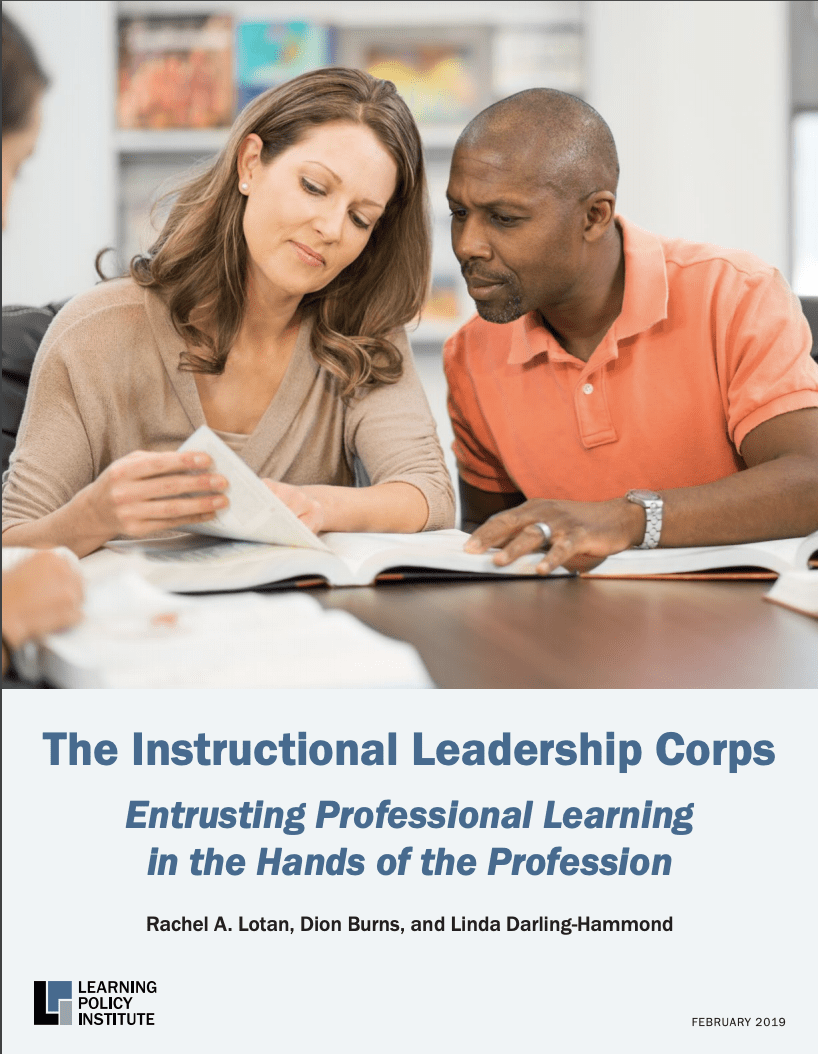
The Instructional Leadership Corps
Entrusting Professional Learning in the Hands of the Profession
A 2019 Report from Learning Policy Institute
The Instructional Leadership Corps (ILC) is an innovative professional learning network in which teacher leaders in California collaborate and support their colleagues in developing teaching strategies and practices aligned with new content standards. Over more than 4 years, 100,000 teachers have participated in conferences and trainings, with overwhelmingly positive responses.
This study describes how the ILC has changed the professional development landscape in four districts, offering lessons about how teacher-led learning can motivate shifts in practice, enhance teachers’ professionalism and efficacy, and create supportive systems and strategic relationships that can sustain change.
The ILC changes the paradigm for teacher learning from one dependent on outside consultants, who often conduct one-time workshops, to one that engages local professionals who have been trained and supported to lead ongoing learning within their own districts—and, in many cases, to carry that learning to other schools and districts in their regions.
Over only 4 years, the more than 250 teachers and administrators who comprise the ILC have served more than 100,000 California educators through a professional learning approach that supports school-based learning, develops additional teacher leaders, builds instructional leadership among administrators, and has begun to strengthen the capacity of schools and districts in California to implement the Common Core State Standards (CCSS) and the Next Generation Science Standards (NGSS). These standards are moving instruction away from a lecture-oriented curriculum that often features scripted lessons and multiple-choice tests toward one based on developing higher-order thinking skills through student inquiry and problem-solving.
Such a shift requires major transformations in how teachers learn and teach, necessitating coherent, high-quality professional development. Implementing these changes across California—a large state serving a diverse and high-need student population, and one that has experienced significant teacher shortages—poses considerable challenges that the ILC was formed to address.
This report describes the work of the ILC and dives deep into the work taking place in Madera Unified School District, Conejo Valley Unified School District, The East Side Alliance, and North Orange County/Fullerton. It discusses program design, impacts on teaching and learning, and lessons learned. The authors found that, “The ILC gave teachers a renewed sense of collegiality, purpose, and common mission that reaffirmed their professional identity, kept them engaged in their work, and gave them a sense of responsibility that extended well beyond their individual classrooms.”
